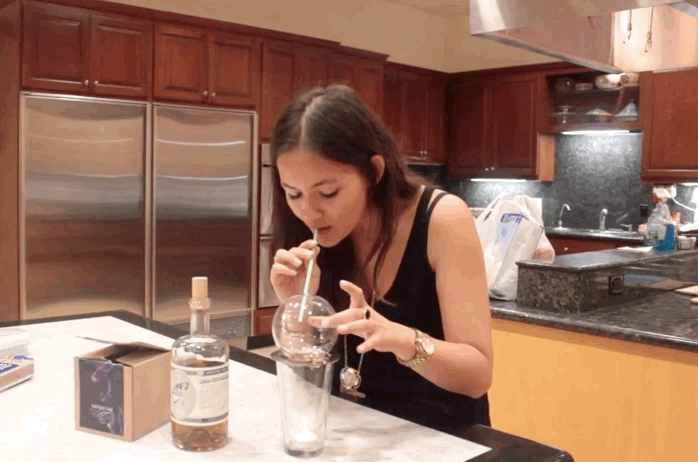Voluntary vaping alcohol produces alcohol dependence in rats.
- Olivier George
- Apr 11, 2017
- 3 min read
The George lab published a new study providing preclinical evidence that self-administration of alcohol vapor produces alcohol dependence in rats.
This preclinical study lead by Dr. de Guglielmo (Senior Research Associate in the George lab) demonstrates voluntary induction and maintenance of alcohol dependence in rats using alcohol vapor self-administration.
This study is groundbreaking for two reasons.
The first is because it shows that vaping alcohol, a new trend in adolescents and young adults, is as dangerous as drinking alcohol in terms of the risk of developing alcohol dependence.
Alcohol vaping has been growing in the past few years. While it started with anecdotical stories of college students using DIY methods to get drunk quickly without having to drink alcohol, this trend has grown into a business model with several companies offering products to inhale alcohol (AWOL, Vaportini) and (wrongly) advertising it as a healthier way of getting buzzed, and bars are offering alcohol vaping.
It has received a lot of press (Time, CNN, ABC, Wired, Buzzfeed, Vice, DailyMail, Gizmodo, GQ), but there is no epidemiological study conducted yet to tell us how prevalent this phenomenon is and the consequences of vaping alcohol on the risk of developing alcohol dependence is also unknown.
"This is a remarkable set of results, these rats were behaving like heavy alcoholics, voluntarily exposing themselves to very high levels of alcohol for hours at a time, passing out, and starting again getting intoxicated after they woke up. All that without forced exposure, without sweetener, without selective breeding. This new animal model opens new area of research that were inaccessible before." said Dr. George.
The is the second reason why these results are important. Because it validates a novel animal model of voluntary induction and maintenance of alcohol dependence in rodents. This is a very important step for a better understanding of the neurobiology of alcoholism and for drug development in order to find new treatments for alcoholism.
Indeed, one major obstacle that researchers faced was that rats do not, under standard conditions, voluntary become dependent on alcohol. Rats simply do not like the taste of alcohol and do not drink enough to become dependent. Researchers have relied on tricks to "make" them dependent using forced exposure to alcohol, sweeteners mixed with alcohol, water deprivation, or using selective breeding of animals that show high levels of drinking.
Before this study there was no good model of voluntary induction and maintenance of alcohol dependence in outbred rats.
The George lab is currently using this novel animal model to identify the neuronal networks responsible for the voluntary induction and maintenance of alcohol dependence, and test the effect of existing and novel medications for the treatment of alcohol use disorder.
Voluntary induction and maintenance of alcohol dependence in rats using alcohol vapor self-administration. de Guglielmo G, Kallupi M, Cole MD, George O. Psychopharmacology (Berl). 2017 Mar 24. doi: 10.1007/s00213-017-4608-7. [Epub ahead of print] PubMed PMID: 28342089.




